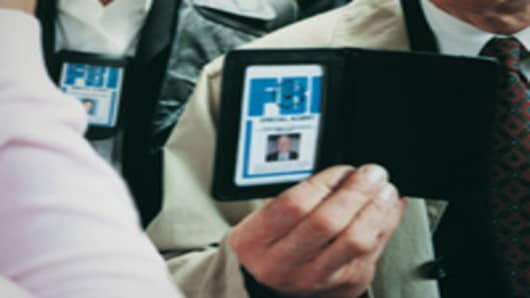The recent insider-trading dragnet conduct by federal authorities, in the most public way, has created a wave of fear stretching from Goldman's offices in lower Manhattan through the hedge-fund strip of Connecticut and beyond.
This is not an accident. The Justice Department and the Securities and Exchange Commission view fear as one of their best friends. They know full well that they cannot catch every violator of securities laws. Instead, they depend on the deterrent effect—which is to say, fear—to prevent violations before they occur.
But the recent terror campaign by federal regulators may be going too far. Instead of just preventing violations of securities laws, it may have a chilling effect on gathering information to aid in better investing and trading.
Although hard data is not available, anecdotal evidence suggests this is happening. I've heard from more than one independent researcher who has told me that the business has been put on hold. Normally, this time of year can be very important for the folks who conduct independent research into things like Black Friday sales. This year, at least some of their clients are worried that purchasing data developed by sector experts may lead to a raid by the feds.
The line between legitimate research and the provision of what the authorities view as illegitimate insider information is increasing blurred. Both types of research provide clients with "non-public" information. But until recently, only information that was purloined from inside a company by a tipster seeking compensation was considered out-of-bounds "insider information." The recent investigations appear to be operating according to a broader definition of insider information.
Perhaps this appearance is not accurate. It may be that the FBI and the SEC will only wind up targeting those who traffic in information leaked from inside a corporate issuer of securities. Maybe the fear is unjustified.
All of this could be cleared up if the Justice Department and the SEC would clearly lay out their theory about how insider-trading regulations apply to outside consultants and expert networks. Instead, they've left investors and researchers guessing. This has created confusion — and, worse, may be depriving the market of important data, as investors shy away from seeking the edge of intelligence.
No doubt the confusion and fear will deter. But it seems clear to many of us that what is being deterred is more than just traditional securities-law violations.
_____________________________________________________
Questions? Comments? Email us atNetNet@cnbc.com
Follow John on Twitter @ twitter.com/Carney
Follow NetNet on Twitter @ twitter.com/CNBCnetnet
Facebook us @ www.facebook.com/NetNetCNBC



